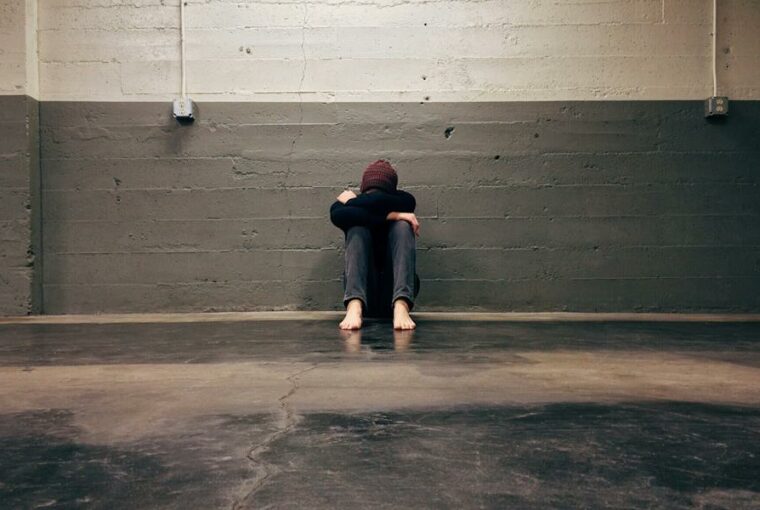Depression is a complex mental health disorder that affects millions of people worldwide. While medication can be effective for some individuals, there are also a variety of therapy options available that can help treat depression and its symptoms. From cognitive-behavioral therapy to alternative therapies like mindfulness and psychedelic therapy, there are many approaches to consider. This comprehensive guide aims to provide an overview of the various therapy options for depression, their benefits, potential side effects, and how they can be accessed. Whether you are seeking therapy for yourself or a loved one, if you are looking for Edwards CO Therapy Services or anywhere else , this guide will provide valuable information to help you make informed decisions about depression treatment.
What Is Depression?
Before delving into the various therapy options for depression, it is essential to have a basic understanding of what depression is. Depression is a mental health disorder characterized by persistent sadness, loss of interest or pleasure in activities, changes in appetite or weight, sleep disturbances, lack of energy, feelings of guilt or worthlessness, difficulty concentrating, and even thoughts of death or suicide.
It is essential to recognize that depression is not a personal weakness or a character flaw. It is a serious medical condition that affects the brain, causing significant emotional distress and interfering with daily life. Depression can be caused by a combination of genetic, biological, environmental, and psychological factors.
If you or someone you know is experiencing symptoms of depression, it is crucial to seek professional help. Now, let’s explore the various therapy options that can effectively address and manage this mental health disorder.
The Benefits Of Therapy For Depression
Therapy is a highly effective treatment option for depression, offering many benefits to those who engage in it. One of the significant advantages of therapy is that it provides a safe and supportive space for individuals to express their emotions and thoughts openly. This opportunity to talk openly about their experiences can help alleviate feelings of isolation and provide a sense of validation and understanding.
Therapy also equips individuals with essential coping strategies and tools to manage their symptoms effectively. Through therapeutic techniques such as cognitive-behavioral therapy (CBT) or dialectical behavior therapy (DBT), individuals can learn to identify negative thought patterns and replace them with more positive and adaptive ones.
Furthermore, therapy offers a non-judgmental environment where individuals can explore the root causes of their depression. Therapy can facilitate healing and promote long-term recovery by addressing underlying issues, such as past traumas or unresolved conflicts.
Types Of Therapy Treatment For Mental Depression
To effectively treat depression, there are several types of therapy options available. Understanding these options can help individuals make informed decisions about which approach may best suit their needs.
Cognitive Behavioral Therapy (CBT)
CBT is a widely used therapy technique that focuses on identifying and changing negative thought patterns and behaviors that contribute to depression. This therapy helps individuals develop healthier coping mechanisms and teaches them to challenge and reframe negative thoughts.
Dialectical Behavior Therapy (DBT)
DBT is a type of therapy that focuses on helping individuals regulate their emotions and build effective interpersonal skills. This therapy combines individual, group, and skill-building sessions to help individuals manage their emotions and improve their overall well-being.
Interpersonal Therapy (IPT)
IPT is a therapy approach that addresses interpersonal issues and improves relationship skills. This therapy explores how different relationships can impact an individual’s mental health and aims to improve communication and problem-solving skills.
Psychodynamic Therapy Depression Treatment
Psychodynamic therapy aims to uncover and understand the underlying unconscious conflicts that contribute to depression. This therapy helps individuals explore past experiences, relationships, and emotions to gain insight and promote healing.
How to Find the Right Therapist For Your Depression Treatment Options
Finding the right therapist for you is a crucial step in the treatment of depression. With various therapy options available, selecting a therapist who aligns with your needs and preferences is important.
When seeking a therapist, there are a few factors to consider:
- Ensure the therapist is licensed and qualified to provide the specific type of therapy you want. This will give you confidence in their expertise and ability to address your needs.
- Consider the therapist’s specialization and experience in treating depression. Some therapists may have additional training or expertise in certain areas, such as trauma or anxiety, which can be beneficial if you have specific concerns.
- Finding a therapist with whom you feel comfortable and can establish a trusting relationship is important. Research suggests that the therapeutic alliance is crucial to successful treatment outcomes. Don’t be afraid to have an initial consultation or ask questions to gauge if the therapist is a good fit for you.
The Therapy Process for Depression
Once you have found the right therapist, it’s important to understand the therapy process for depression. Therapy is typically conducted in a series of sessions, with the frequency and duration varying depending on the individual’s needs.
During the initial sessions, the therapist will conduct an assessment to understand your unique circumstances better and develop a treatment plan tailored to your needs. They may ask questions about your symptoms, personal history, and other relevant factors.
After the assessment, therapy sessions will focus on specific goals and techniques designed to address your depression. Depending on your type of therapy, these sessions may involve cognitive-behavioral techniques, interpersonal therapy, or other evidence-based approaches.
Throughout the therapy process, your therapist will work with you to identify negative thought patterns, develop healthy coping strategies, and explore underlying issues that may be contributing to your depression. They will also provide support, guidance, and encouragement as you navigate your journey toward recovery.
Self-Care Strategies to Complement Therapy Treatments for Depression
In addition to attending therapy sessions, incorporating self-care strategies into your daily routine can greatly complement your depression treatment. These practices can help enhance your well-being, reduce symptoms, and maintain progress in therapy sessions.
Prioritize taking care of your physical health. Exercise regularly, eat a well-balanced diet, and ensure you get enough sleep. These lifestyle factors have been shown to impact mental health positively.
Practice stress-reducing techniques such as deep breathing, meditation, and mindfulness. These can help calm the mind, reduce anxiety, and improve overall mood. Journaling and engaging in creative outlets like art or music can also serve as effective means of emotional expression and release.
Engage in activities that bring you joy and relaxation. Whether it’s spending time with loved ones, pursuing hobbies, or simply taking time for yourself, incorporating activities that bring you happiness can have a powerful effect on your mental well-being.
You actively participate in your healing by incorporating self-care strategies into your daily routine. These practices can enhance the effectiveness of therapy and empower you to take control of your journey toward recovery.
Managing Expectations and Setting Goals in Therapy
When embarking on a therapeutic journey for depression, it is essential to have realistic expectations and set achievable goals. Understanding therapy’s purpose and potential outcomes can help you navigate the process more effectively.
Recognizing that therapy is not a quick fix or a magical cure is crucial. It is a collaborative process between you and your therapist. It takes time and effort to work through the underlying issues causing your depression and develop healthy coping mechanisms.
Setting therapy goals can give you a sense of direction and purpose. Talk to your therapist about what you hope to achieve, whether it is reducing the frequency of depressive episodes, improving relationships, or gaining a better understanding of yourself. Your therapist can help you formulate specific, measurable, attainable, relevant, and time-bound (SMART) goals that align with your needs and aspirations.
While being proactive and engaged in therapy is important, it is essential to be patient with yourself. Healing takes time, and setbacks can happen along the way. Remember that progress is not always linear, and each step forward is significant, no matter how small.
The Importance of Ongoing Support
Therapy for depression is not just a one-time event; it often requires ongoing support to ensure long-term success. While therapy sessions provide a valuable space for exploration and growth, it is essential to have a support system in place outside of these sessions.
Ongoing support can take various forms, depending on your needs and preferences. It may involve leaning on family and friends who understand and empathize with your struggles. It could also mean joining support groups or online communities where you can connect with others experiencing similar challenges.
A support system can give you a sense of belonging and validation. It can also offer practical assistance, such as helping you stay accountable to your therapy goals or providing a listening ear during difficult moments.
Remember, reaching out for support is not a sign of weakness but a courageous step towards healing and growth. By surrounding yourself with individuals who uplift and empower you, you can create a solid foundation of ongoing support that complements your therapy journey.
Conclusion
Taking the first step towards healing is often the hardest part of the journey. But by understanding therapy for depression and the value of ongoing support, you have already taken a significant step forward. It is essential to remember that therapy is not a quick fix but a process that requires time, commitment, and patience.
By leaning on your support system, whether loved ones or support groups, you can create a network of understanding and empathy that will aid your healing. Remember, reaching out for help is not a sign of weakness but strength and bravery.




